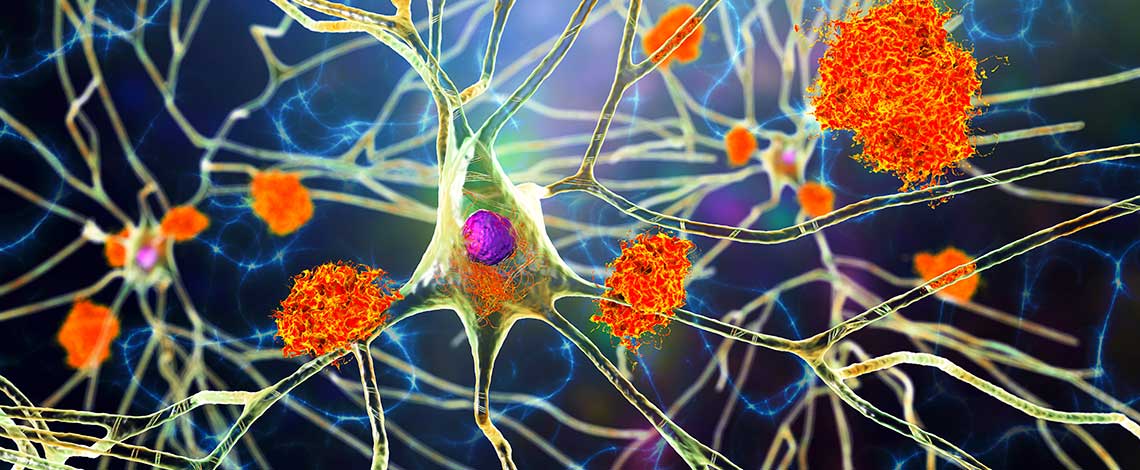
An estimated 6.7 million Americans are living with Alzheimer’s disease, the most common cause of dementia. About 1 in 9 people age 65 or older has this disease. (2023 Alzheimer’s Report, Alzheimer’s Association).
So it’s understandable that researchers are working hard on finding ways to prevent and treat it. This article shares the latest developments in Alzheimer’s research.
One of the hallmarks of Alzheimer’s disease is the accumulation of amyloid-beta protein in the brain. These proteins clump together to form plaques that disrupt communication between brain cells, leading to cell death and brain damage. This buildup of plaques is thought to be one of the main causes of the symptoms of the disease. Many treatments target amyloid, trying to clear the brain of this abnormal protein.
Here are some of the treatments in the pipeline:
- Leqembi: In January 2023, the U.S. FDA granted accelerated approval for lecanemab (Leqembi), a monoclonal antibody. Monoclonal antibodies mimic the antibodies our system produces naturally as part of our immune system’s response to foreign invaders. Leqembi targets amyloid-beta plaques in the brain, which are believed to be a major factor in the development of Alzheimer’s disease. Simply put, Leqembi works by clearing and thus preventing amyloid plaques in the brain from clumping. FDA approval of the drug is expected in July of this year. Shortly following, we expect Medicare to define benefits for Medicare recipients.
- BACE inhibitors: These drugs aim to inhibit the beta-secretase enzyme, which is responsible for producing amyloid-beta peptides. By blocking this enzyme, BACE inhibitors could potentially slow the accumulation of amyloid-beta plaques. Some BACE inhibitors have failed in clinical trials, but research in this area is ongoing.
- Tau-targeting therapies: Another hallmark of Alzheimer’s disease is the accumulation of tau proteins, which form tangles inside brain cells and disrupt cell function. Several drugs are in development that target tau proteins to prevent tangle formation or promote their clearance.
- Anti-inflammatory and immune-based therapies: Chronic inflammation and immune system dysfunction have been implicated in the development and progression of Alzheimer’s disease. Treatments targeting these processes, such as immunotherapies or drugs that regulate the immune response, are being explored as potential therapies.
- Lifestyle interventions: Research suggests that a healthy lifestyle, including regular physical activity, a balanced diet, and cognitive stimulation, can potentially reduce the risk of Alzheimer’s disease or delay its progression. Ongoing research is working to better understand the relationship between lifestyle factors and Alzheimer’s disease, as well as to develop interventions that promote brain health.
- Stem cell therapy: Stem cell therapy is a promising area of research for treating various neurological disorders, including Alzheimer’s disease. Researchers are investigating the potential of stem cells to replace damaged brain cells or to release factors that can promote brain repair and recovery.
New therapies are on the horizon and the future for both treatment and prevention of Alzheimer’s disease looks promising.
At Be Well, our mission is to care for seniors, as they age. We do this by providing medical care in their homes and by dedicating resources to research therapies for the future. Please visit us at Be Well MD or Be Well Clinical Studies.
Mark Carlson, MD
Geriatrician and Medical Director


